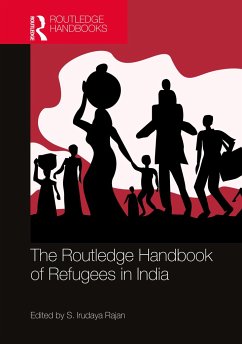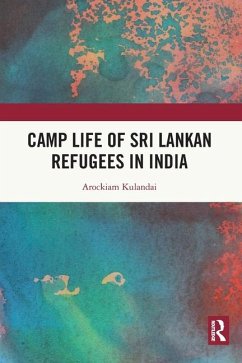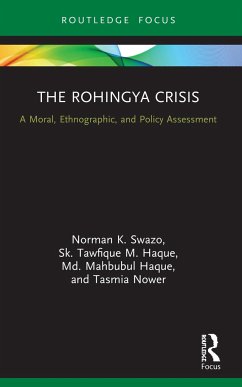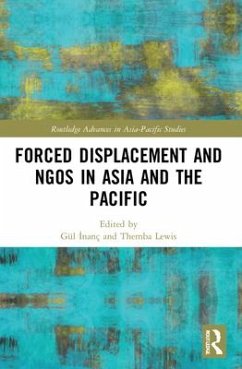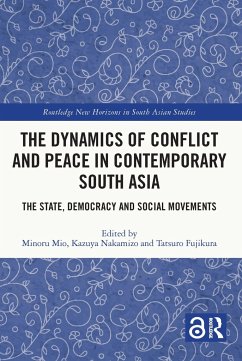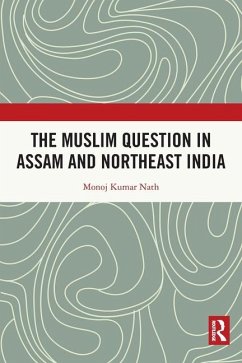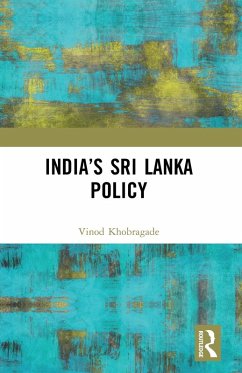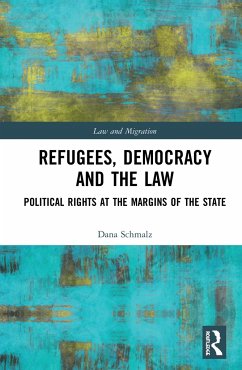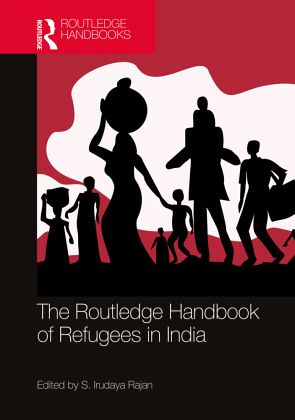
The Routledge Handbook of Refugees in India
Versandkostenfrei!
Versandfertig in 6-10 Tagen
47,99 €
inkl. MwSt.

PAYBACK Punkte
24 °P sammeln!
This handbook marks a key intervention in refugee studies in India-home to diverse groups of refugees, including an entire government in exile. It unravels the various socio-economic, political, and cultural dimensions of refugee issues in India.The volume examines the various legal, political, and policy frameworks for accommodating refugees or asylum seekers in India, including the Citizenship Amendment Act and the National Registry of Citizens. It evaluates the lack of uniformity in the Indian legal and political framework to deal with its refugee population and analyzes the grounds of incl...
This handbook marks a key intervention in refugee studies in India-home to diverse groups of refugees, including an entire government in exile. It unravels the various socio-economic, political, and cultural dimensions of refugee issues in India.
The volume examines the various legal, political, and policy frameworks for accommodating refugees or asylum seekers in India, including the Citizenship Amendment Act and the National Registry of Citizens. It evaluates the lack of uniformity in the Indian legal and political framework to deal with its refugee population and analyzes the grounds of inclusion or exclusion for different groups. Drawing from the experiences of Jewish, Tibetan, Pakistani, Bangladeshi, Sri Lankan, Afghan, and Rohingya refugees in India, it analyzes debates around marginalization, citizenship, and refugee rights. It also explores the spatial and gendered dimensions of forced migration and the cultural and social lives of displaced communities, including their quest for decent work, education, and health.
The volume will be an indispensable reference for scholars, lawyers, researchers, and students of refugee studies, migration and diaspora studies, public policy, social policy and development studies.
The volume examines the various legal, political, and policy frameworks for accommodating refugees or asylum seekers in India, including the Citizenship Amendment Act and the National Registry of Citizens. It evaluates the lack of uniformity in the Indian legal and political framework to deal with its refugee population and analyzes the grounds of inclusion or exclusion for different groups. Drawing from the experiences of Jewish, Tibetan, Pakistani, Bangladeshi, Sri Lankan, Afghan, and Rohingya refugees in India, it analyzes debates around marginalization, citizenship, and refugee rights. It also explores the spatial and gendered dimensions of forced migration and the cultural and social lives of displaced communities, including their quest for decent work, education, and health.
The volume will be an indispensable reference for scholars, lawyers, researchers, and students of refugee studies, migration and diaspora studies, public policy, social policy and development studies.



